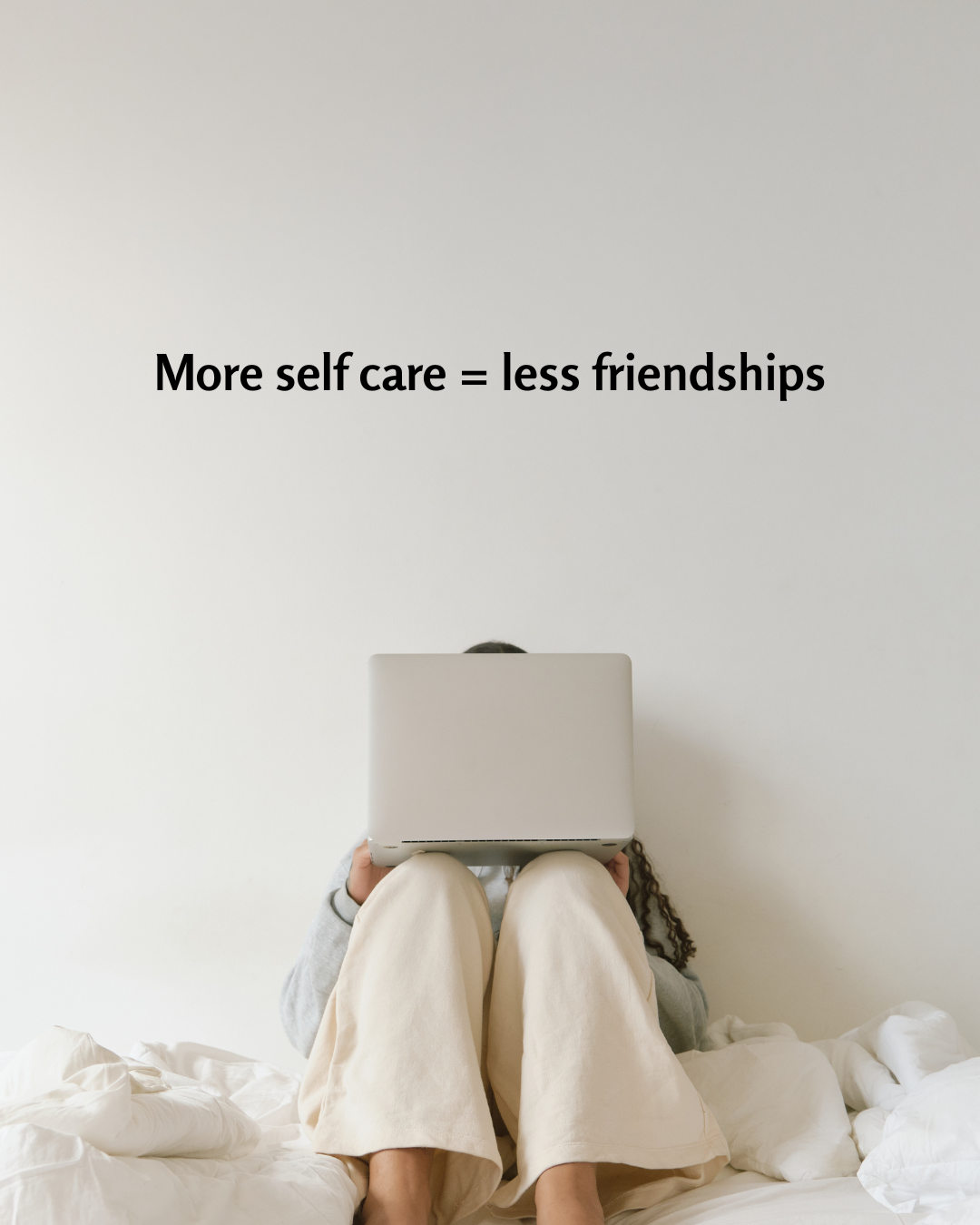Self-care is crucial for mental health, but when taken to the extreme it can become counterproductive and isolate us from healthy and meaningful relationships. It is important to remember that the goal of self-care is not to avoid others, but to prepare ourselves to relate better, strengthen our bonds and find a healthy balance between personal well-being and social connection.
Unbalanced self-care
Many times, in therapy (and I am guilty of this sometimes) therapists emphasize practices such as setting limits, listening to our needs, enjoying solitude, or even carrying established and structured routines.
Buuuuuut... when this approach revolves only around oneself and becomes rigid, some of these negative consequences can occur:
- Social isolation and difficulty in forming meaningful bonds.
- Difficulty adapting to the needs and limits of others.
- Live self-care as an obligation, generating guilt or additional pressure.
- Loss of spontaneity and joy in interpersonal relationships.
- Lack of reciprocity, because only self-care matters and not the care of others.
A healthy approach to self-care
The “good” self-care should help us to be better for ourselves and for others. Preparing for relationships includes:
- Learn to set limits, but also to respect the limits of others.
- Enjoy the time alone, but without avoiding sharing and connection.
- Use self-care to nurture our capacity for empathy, openness and social enjoyment.
Practical tools for balanced self-care
- Balance diary: Write at the end of the day about a self-care action and a social connection action that you have practiced.
- Relationship map: Make a diagram of the important people in your life; reflect on how self-care can strengthen you to get closer to them and not to isolate yourself.
- Reciprocity exercise: Practice offering help or support to others, and notice how it makes you feel. Reflect on whether your self-care allows you to be present for others.
- Flexible routine: Make sure your self-care routine is NOT a rigid list of tasks.Make room for spontaneity and adaptation depending on your real needs and those of your environment.
- Time sharing: Schedule activities that combine self-care and connection, such as walking with a friend, cooking with family or attending a support group.
- Group self-knowledge spaces: Participate in workshops or therapeutic circles where you can explore your individual needs within a social context.
What I want you to take away from these ideas is that a genuine self-care strengthens us to be able to give and receive in our relationships. In my opinion personal growth if not balanced can become an isolation trap.
Remember: taking care of yourself also means opening up to others and allowing others to nourish you.



Comentarios ()